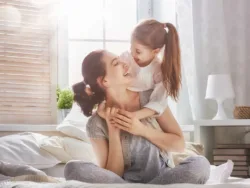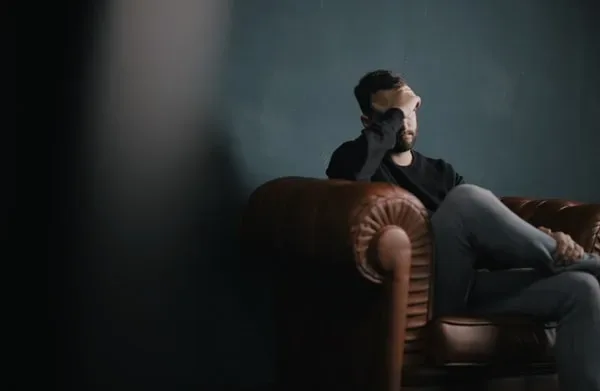
With everything that is happening during the COVID-19 pandemic, it’s normal for children to feel anxious. Routines have been disrupted, people are being asked to stay at home as much as possible, and a lot of people are getting sick.
As a parent or caregiver, you may be unsure how to talk to kids about COVID-19 in a way that can reassure them. Here are some tips for talking to your children about coronavirus.
Let Your Children’s Questions Lead the Discussion
A good starting point is to ask your kids what they know about coronavirus and what questions they have. This will satisfy their biggest concerns and help you avoid overwhelming them with information.
Pay Attention to Your Own Emotions
Children can sense your emotions through body language, tone, and behavior. If you are reassuring them with your words but your behavior indicates anxiety, they will pick up on that and may become even more anxious. Therefore, it’s important to actively manage your own anxiety about COVID-19.
Be Truthful but Developmentally Appropriate
While you don’t want to lie about the coronavirus or ignore what is happening, it’s equally important to keep your child’s stage of development in mind. They may not understand everything you’re telling them, especially if the language is too complex. Use easy-to-understand words and simple phrases. Here are some examples from the CDC of things you might tell them:
- COVID-19 is the short name for “coronavirus disease 2019.” It is a new virus. Doctors and scientists are still learning about it.
- Recently, this virus has made a lot of people sick. Scientists and doctors think that most people will be ok, especially kids, but some people might get pretty sick.
- Doctors and health experts are working hard to help people stay healthy.
Let Your Kids Know They Can Talk to You About COVID-19
Just letting your children know that you are available can help ease their fears. It’s important for them to feel they have a safe space to go and talk about what’s worrying them.
Reassure them that you will try to answer all their questions, even though you don’t have all the information about coronavirus yet.
Also let your kids know that you will continue to update them as doctors and scientists learn more about COVID-19. Knowing that you are going to keep them connected to information helps ease their anxiety.
Discuss Preventative Measures and Treatments
At a time when many things are beyond your control, focus on what you can control. Teach your kids how to protect themselves from getting sick. You can show them how to wash their hands correctly, use hand sanitizer, cover their cough, and stay six feet away from people. Talk to them about the importance of staying home to prevent the spread of the virus.
Also let your children know that doctors are taking care of the people who do get sick. Depending on your child’s age, it may not be necessary to go into detail about ventilators and medications that are being tested to treat the virus, just let them know that doctors are able to help. You could also mention that scientists are working on a vaccine to protect people.
Allow Room for Healthy Emotional Expression
While your instinct may be to tell your children not to worry or to constantly reassure them, it’s equally important to give them space to express their emotions. Let your child know it’s normal to feel anxious, worried, or afraid. The key is not to dwell on those negative feelings.
It’s also important to closely monitor your child for negative mental health symptoms. Here are some things that indicate a problem:
- Sleep disturbances (sleeping too much or too little)
- Changes in appetite or fluctuations in weight
- Withdrawing from family interaction
- Lashing out or disobeying
- Trouble concentrating
- Losing interest in activities they enjoy
- Constant, disruptive feelings of anxiety
- Expressing guilt, hopelessness, or helplessness
- Talking about death or dying
If you notice one or more of these symptoms, contact your child’s primary care provider or a mental health professional for advice. They may suggest therapy to help address these issues.
The Light Program Has a Virtual Children’s Therapy Group
In light of Pennsylvania’s stay at home order, The Light Program has moved its programming online. We now offer our mental health services through the secure video conferencing platform BlueJeans. If your child is having trouble coping with stress over COVID-19, or their regular therapy sessions have been interrupted by the stay at home order, our children’s group can help.
This program is offered at our Exton location, but anyone in the state of Pennsylvania can participate virtually. Contact our admissions team at (610) 644-6464to enroll your child in this program.






